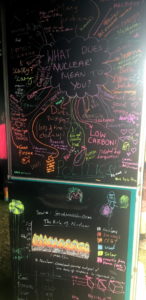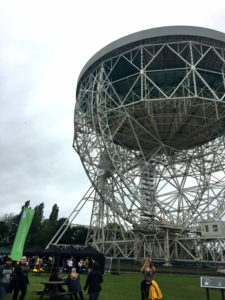An important element of the RAIN Hub’s work is our mission to communicate the challenges faced by the nuclear industry, and our robotic and AI solutions, to the general public. To facilitate this, we have developed some outreach games. These have been designed with two of our working groups in mind; remote handling and remote inspection.
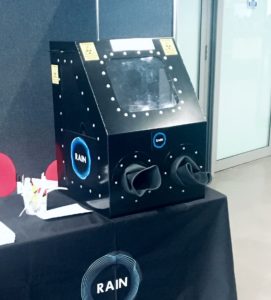 We have an outreach glovebox to demonstrate how challenging it is to work in a glovebox, for even a small amount of time. In terms of an outreach game it has been really successful when we have used it. You can vary the challenge inside the box depending on the event. We have asked people to use a knife and fork to open a sweet wrapper in the past, giving the sweet as a reward. Alternatively we’ve used it for a more nuclear challenge; moving a set quantity of “radioactive waste dust” from one box into a storage container. Adding a stopwatch and leader-board creates some fun competition to help with engagement. The primary benefit of this tool is that people are really receptive listeners whilst using it, and get to experience using a glovebox first-hand (pun intended). People often walk up thinking it looks easy, but soon realise how challenging it is, and how much more comfortable, efficient, and safe a remotely operated robotic system would be. To complement this challenge we have a small manipulator robot that can be used to move “fuel rods” (silver crayons).
We have an outreach glovebox to demonstrate how challenging it is to work in a glovebox, for even a small amount of time. In terms of an outreach game it has been really successful when we have used it. You can vary the challenge inside the box depending on the event. We have asked people to use a knife and fork to open a sweet wrapper in the past, giving the sweet as a reward. Alternatively we’ve used it for a more nuclear challenge; moving a set quantity of “radioactive waste dust” from one box into a storage container. Adding a stopwatch and leader-board creates some fun competition to help with engagement. The primary benefit of this tool is that people are really receptive listeners whilst using it, and get to experience using a glovebox first-hand (pun intended). People often walk up thinking it looks easy, but soon realise how challenging it is, and how much more comfortable, efficient, and safe a remotely operated robotic system would be. To complement this challenge we have a small manipulator robot that can be used to move “fuel rods” (silver crayons).
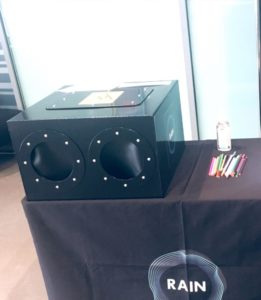 The second game we have designed works alongside the remote inspection working group. “The unknown room” represents a common challenge in the nuclear industry. There are areas, that are potentially highly hazardous, that need to be mapped and characterised before a decommissioning strategy can be determined. This game is a black box with hand holes on each side. Players need to feel around inside the box and create a map of the room, highlighting potential radiation hot spots. There can be items in there that represent storage containers, or standard household items that are known to give off low levels of radiation (although we quickly learnt real bananas should be avoided!). It is a great way to talk about this challenge, and an opportunity to ask what an inspection robot might need to be able to do to fulfil this role. To complement this challenge we have used a robot within a maze that needs to search for a radioactive canister.
The second game we have designed works alongside the remote inspection working group. “The unknown room” represents a common challenge in the nuclear industry. There are areas, that are potentially highly hazardous, that need to be mapped and characterised before a decommissioning strategy can be determined. This game is a black box with hand holes on each side. Players need to feel around inside the box and create a map of the room, highlighting potential radiation hot spots. There can be items in there that represent storage containers, or standard household items that are known to give off low levels of radiation (although we quickly learnt real bananas should be avoided!). It is a great way to talk about this challenge, and an opportunity to ask what an inspection robot might need to be able to do to fulfil this role. To complement this challenge we have used a robot within a maze that needs to search for a radioactive canister.
We took these challenges to Bluedot festival in July 2019. We teamed up with the Dalton Nuclear Institute at this event and set up alongside their stand “Let’s talk about nuclear”. Our aim for the festival was to encourage people to talk about the nuclear industry, and the future use of robotics. As well as a range of activities we took a graffiti board to gather people’s thoughts, and beanbags for people to relax and talk to researchers – when it wasn’t raining.
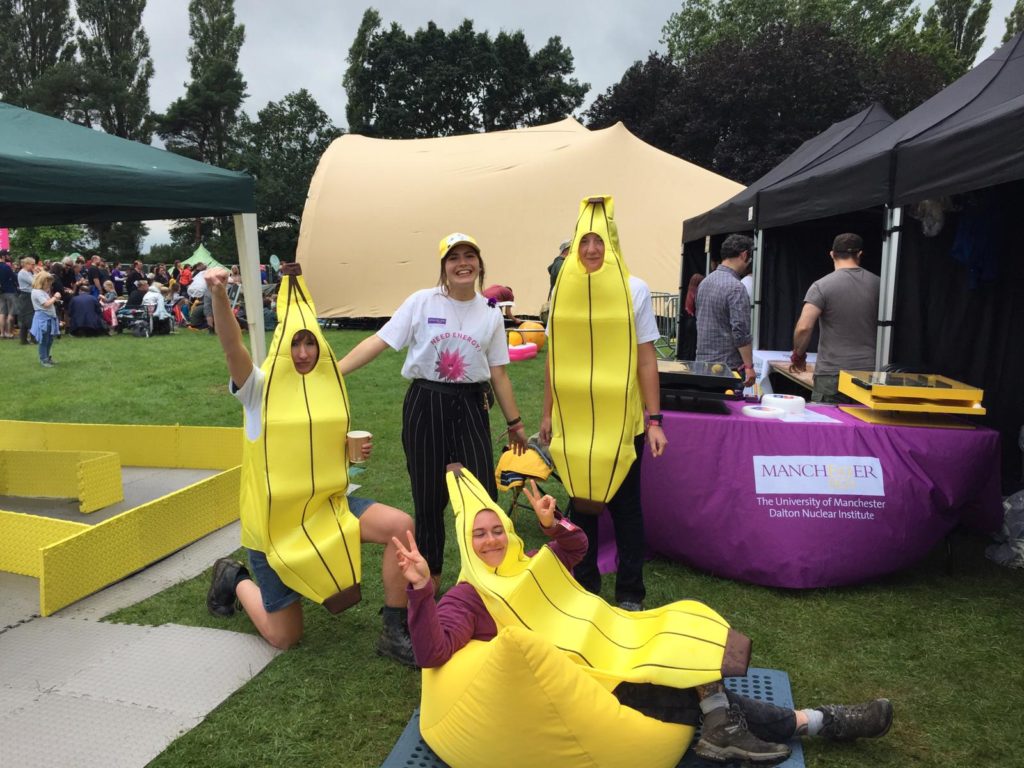
It was a really worthwhile event. We had many great conversations, and hope we busted some myths. We had a full and competitive leader board for the glovebox game and some nicely drawn maps of our unknown room. It was a learning curve for some activities (the maze needed to be far more robust) but we hope our visitors learnt a lot too. Being a science and music festival held under the shadow of the Lovell telescope, the audience at Bluedot tended to be quite scientific and receptive to nuclear, robotics and AI. We will be working again with Dalton in April 2020 to take our outreach team to ScienceX, a science extravaganza in the Trafford Centre. Being held in a shopping centre on a busy Easter weekend will mean there is a different audience. We look forward to seeing what ideas and discussions come up on our graffiti wall in an entirely different environment.
